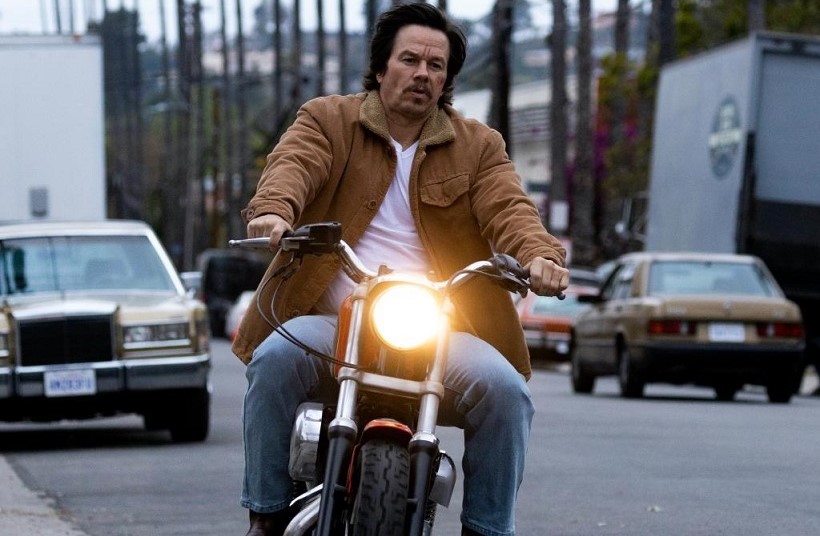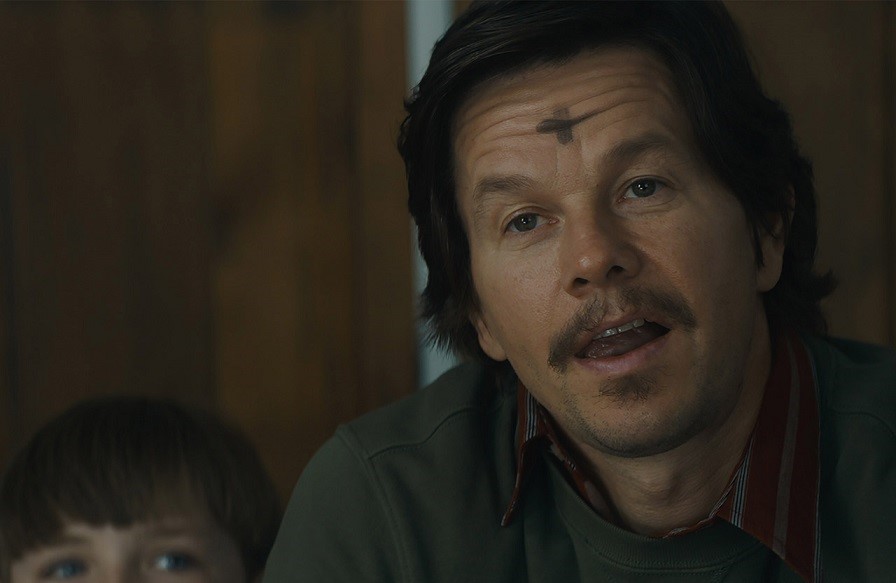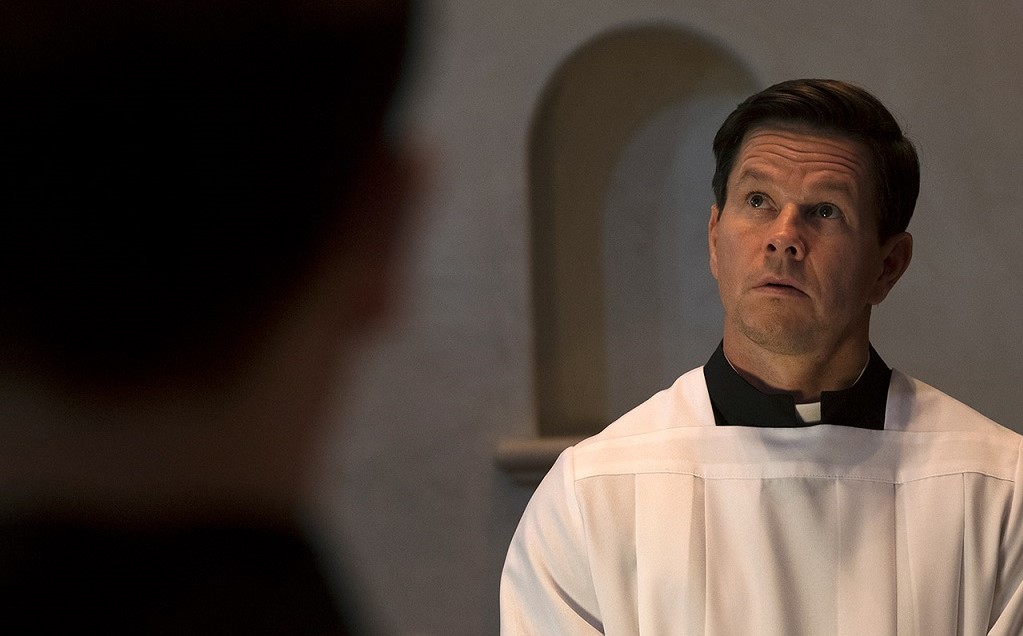
This film from Sony Pictures is currently playing exclusively at movie theaters.
With the Easter holiday approaching, the new biopic Father Stu tells a very unusual story about a troubled boxer who ultimately became a Catholic priest, finding renewal and purpose in his life helping to serve others within his congregation. The feature was funded in part by the star of the film and its message of redemption is well-intentioned. It boasts strong performances and is better than many other religious-themed titles. However, the film also sermonizes too bluntly and ultimately wears out its welcome.

After his boxing career stalls and he is forced to retire, impulsive and hard-living Stuart Long (Mark Wahlberg) decides to leave his Montana home. His plan involves moving to Los Angeles and becoming a movie star, much to the chagrin of his mother Kathleen (Jacki Weaver) and estranged father, Bill (Mel Gibson). Without any acting experience, he finds life in Hollywood more difficult than anticipated. After visiting a church, Stuart becomes smitten with devout Catholic Carmen (Teresa Ruiz), but his reckless and self-destructive ways cause trouble in their relationship. After a traumatic incident, the protagonist has a vision and becomes determined to attend seminary school and become a priest. His path becomes even harder after being diagnosed with Inclusion-Body Myositis, a disease that causes progressive muscle weakness.

The first half of the movie veers in different directions as the unfocused lead follows ever-changing goals. It results in a rather episodic feel to the proceedings, but at least the Stuart’s story is unique. Wahlberg impressively undergoes a physical transformation over a period of several years in the character’s life. He also makes the most of the protagonist’s matter-of-fact approach to life and desire to needle everyone from his father to the priests he meets. It is amusing to watch the character use foul language in these exchanges, resulting in some entertaining reactions from reserved figures attempting to deal with his direct observations.
Stuart’s interactions with his dumbfounded parents also result in a few funny jabs. But the film’s most gladdening surprise is the appearance of acting veteran Malcolm McDowell as a conservative monsignor. It’s an unusual casting choice given the performer’s history of playing intense and intimidating characters (among them, the lead in Stanley Kubrick’s A Clockwork Orange). While McDowell doesn’t appear until the second half of the film, seeing him take on a very different role does make an immediate impression.

Still, as previously mentioned, the central figure’s random flights of fancy, mood swings and holy visions cause plenty of story issues. In fact, this representation of Stuart Long may actually leave viewers wondering if he hadn’t suffered from bipolar disorder or a similar illness. His behavior is at times remarkably selfish and has terrible ramifications for those who care about him. The supporting players do make cracks about Stuart’s mindset and the film tries to sell his missteps as important moments on his journey to recovery, but it’s still a tough sell. Additionally, the movie and characters never interpret his visions from above or motivation to become a priest as anything other than divine inspiration.
And, as Stuart finds redemption serving the church (even while dealing with a crippling disease) and begins to share his faith and wisdom to others, the movie begins to preach more than attempt to analyze the fascinating life of a complicated figure. Father Stu will certainly appeal to its core demographic. It has its heart in the right place and the cast manage to give the story some zip. However, this telling ultimately falters as it progresses and ends up leaving this reviewer with more questions than answers.


